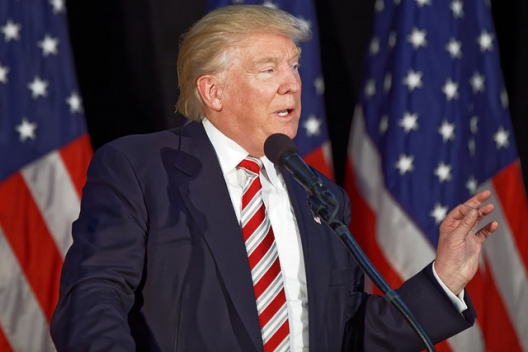 Forget historic entanglements, alliances and enmities: after Mr Trump’s inauguration next week, the world’s most powerful nation will make its own rules. America First looks a lot like America Alone….
Forget historic entanglements, alliances and enmities: after Mr Trump’s inauguration next week, the world’s most powerful nation will make its own rules. America First looks a lot like America Alone….
Those looking for a grand design will be disappointed. Mr Trump prefers dealmaking to strategic thinking. His Make America Great Again prospectus is a jumble of instincts, prejudices and impulses. Among the ingredients: economic nationalism, antipathy to “globalism”, hostility towards immigrants, a relentless focus on Islamist extremism and a transactional, zero-sum view of great power relations. Add to this mix palpable disdain for the Nato alliance and equivocation about security guarantees for East Asian allies such as Japan and South Korea.
For all that, the tension between disavowal of international leadership and the promised restoration of US power and prestige — bellicose isolationism, you might call it — has caught the national mood. The legacy of the wars of choice in Iraq and Afghanistan has drained popular support for foreign adventurism. The Pew Research Center recorded in June that nearly six out of 10 Americans want the US “to deal with its own problems and let other countries deal with their own problems the best they can”. Yet the same opinion poll shows a majority still wanting the US to retain its global primacy….
Mathew Burrows, a former counsellor at the National Intelligence Council and now a director at the Washington-based think-tank the Atlantic Council, puts it succinctly: “Pax Americana no longer pays. Instead, Mr Trump believes that the US is self-reliant enough to slough off the rules-based order even if others are hurt by the loss of US leadership….”
“We have to see how much of it is put into practice,” one senior European diplomat says of the new president’s pronouncements, “but it is fairly clear that Trump is closing the door on US global leadership”. Another senior European policymaker remarks: “We will all strike our bilateral deals with the new administration, but it’s foolish to pretend there will be a transatlantic meeting of minds.” Mr Trump scorns multilateralism. In Europe it is a religion….
What was true for Mr Bush, the optimist narrative runs, will be more so for Mr Trump. The global power balance has tilted towards a rising, more assertive China and a belligerent Russia. There are some geopolitical facts the new president cannot deny.
Beguiling though the idea may seem to a dealmaker, detaching America’s national interests from its international commitments and alliances is impossible. Economic interdependence cannot be wished away and, as Mr Bush discovered in Iraq, military might has its own limits. Nor does retrenchment offer a viable alternative to engagement. Wherever it looks, the US has national interests to be promoted and protected, whether economic and commercial or geopolitical and military….
The new president will discover soon enough that the US needs help in the fight against Isis and that American businesses would be among the biggest losers from a drift back into global protectionism. It is equally likely that the president-elect’s infatuation with Mr Putin will last no longer than similar attempts by both Mr Bush and Mr Obama to reset relations with Moscow….
At the end of next week Mr Trump will become the leader of the world’s most powerful nation. By most calculations, the US military will be unmatched for decades to come. But primacy is not the same as hegemony. The new president will find that most of his goals are out of reach of an America acting alone. Deals are no substitute for allies, and angry tweets will not restore US power and prestige.
Image: Donald Trump, Sept. 13, 2016 (photo: Michael Vadon)
